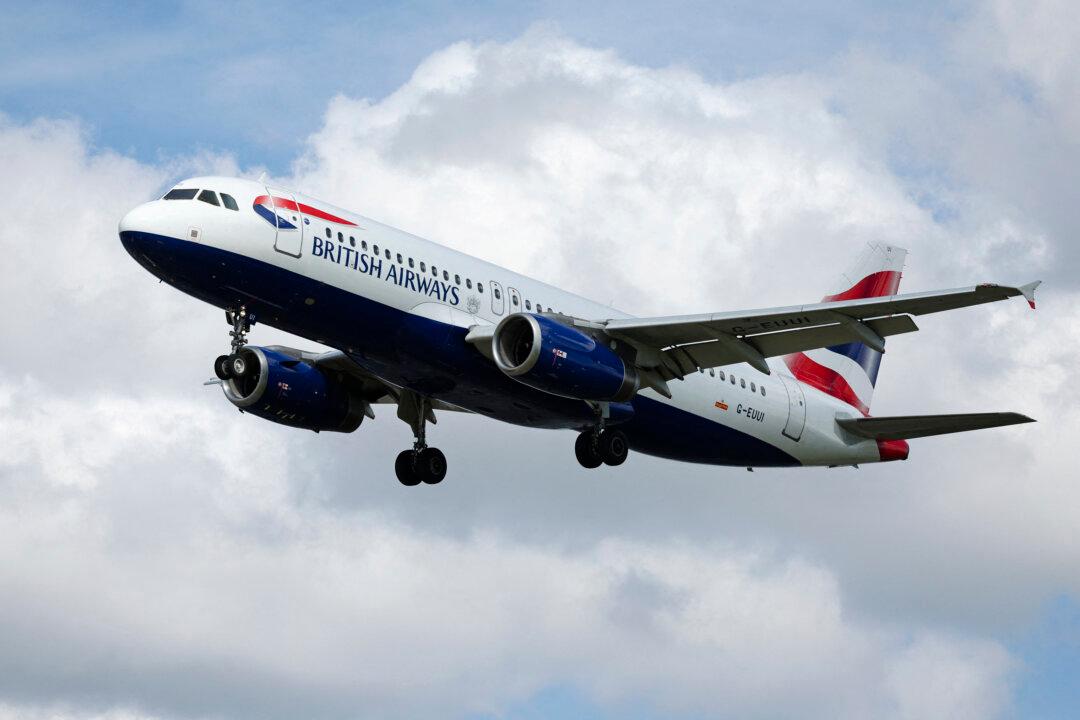British Airways will halt flights between London and Beijing from Oct. 26, the company confirmed on Thursday.
The announcement made the company the third commercial airline that has recently announced plans to suspend a route to China amid an ongoing ban on Western airlines using Russian airspace.





